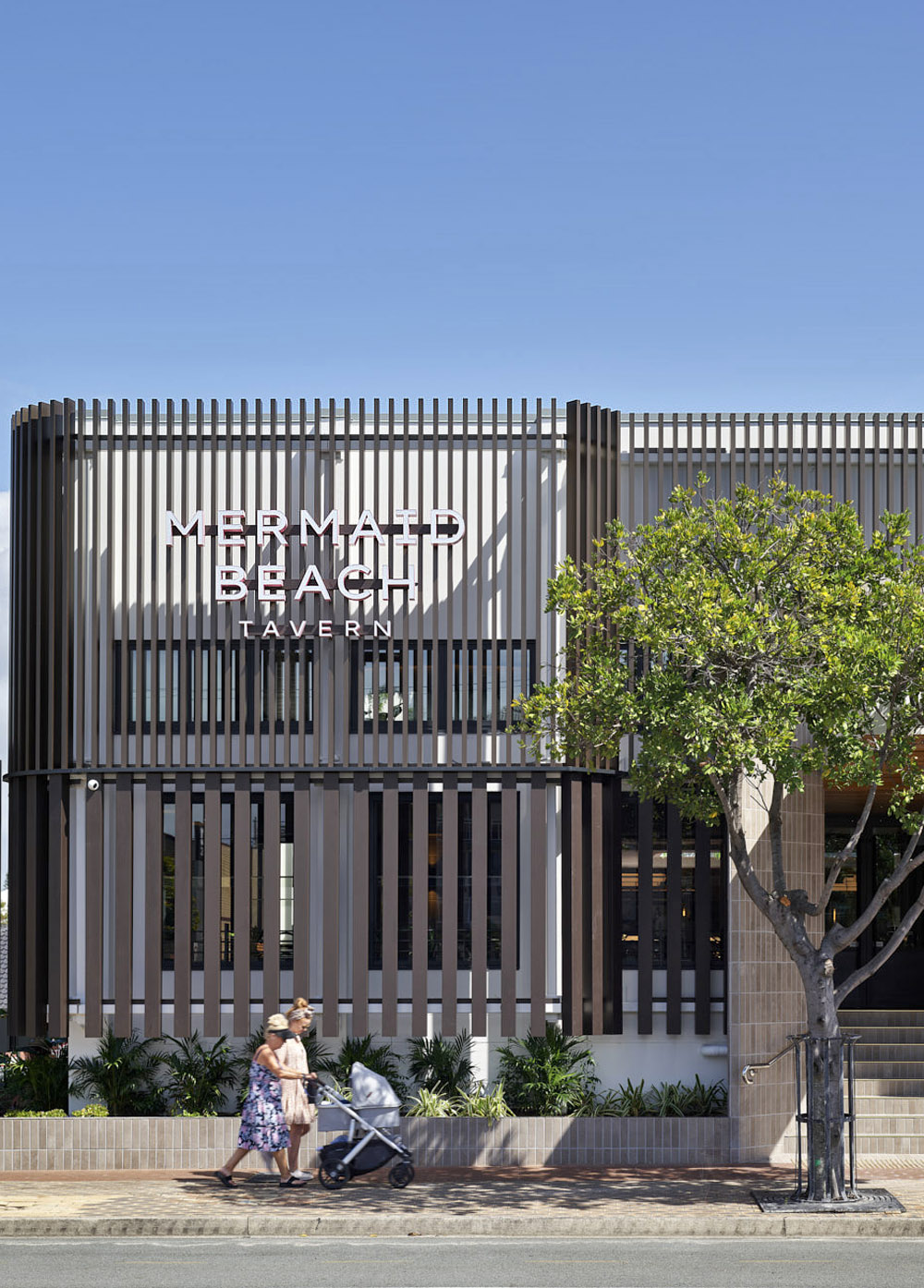MAJOR FEATURE
ALL IN THE FAMILY SPIRIT
Australian Venue Co (AVC) is Australia’s second-largest operator, counting over 170 venues, spanning every state and territory, as well as across the ditch, in New Zealand.
“It comes down to different times of day, but I would say at least 75 per cent of our venues are what I would call family-friendly – somewhere I would take my own family,” says AVC CEO Paul Waterson.
The group discovered the virtues of family-friendly as a growth strategy around four years ago, when the carpark of the Station Hotel in Footscray was converted into a large beer garden, with a playground that took up about 30 per cent of the new space. To their pleasant surprise, revenue at the pub doubled.
AVC has been very active in its renovations, particularly during the pandemic. Its Bribie Island Hotel is another beginning a multi-million-dollar makeover, to revitalise all the pub’s spaces. The bistro, beer garden, sports bar and gaming room will be joined by an epic new kids’ play area for local and visiting families. The pub is slated to fully re-open by the end of the year, with capacity for 250 seated guests inside in the bistro, and another 250 in the beer garden.
Waterson says they are seeing the increasing instance of “multi-generational catch-ups” and find the need for an environment to suit three generations.
“What we’re finding when we do put in quirky, unique playgrounds, is that parents just want a break. They love large outdoor spaces, with an attractive area for the kids to play in, while they just have a quiet meal and a few drinks.
“But it’s not just about putting in a playground and thinking ‘now I’ve got a family-friendly pub’. We find you’ve got to go all in. On the weekend we do animal farms – petting zoos, and face painters, and have magicians performing tricks for the kids. It really creates quite a carnival atmosphere in the beer
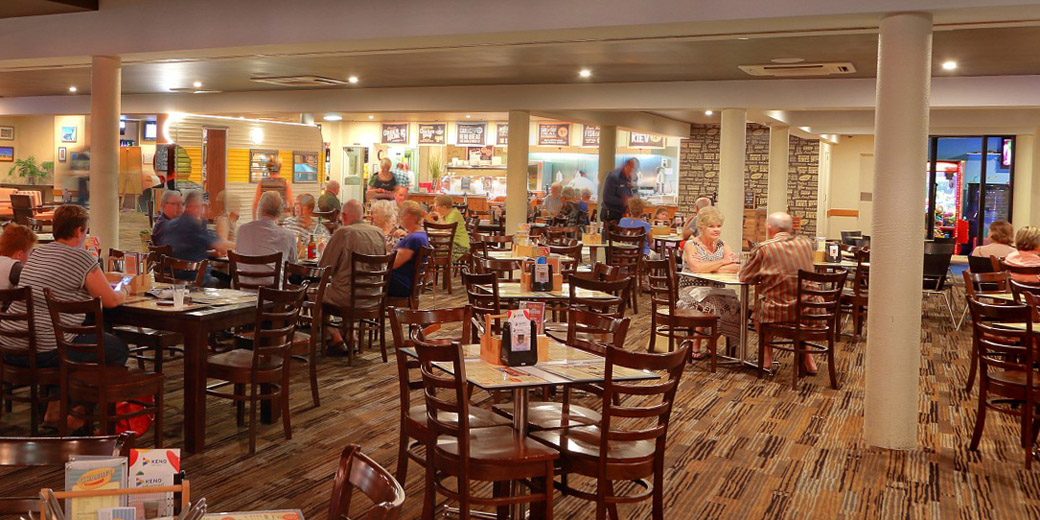
Bribie Island Hotel
MAJOR FEATURE
gardens, particularly on Saturdays and Sundays. And that’s what we’re going for in our family-friendly locations.”
AVC operates the Auburn Hotel, formerly the Geebung Polo Club, which had a renowned and rambunctious Sunday session full of booze and enormous grief with the locals. These days they do the same revenue on a Sunday, but with a family-focused offering and absolutely no issues.
The zoo is at Auburn every Sunday, offering kids a kid (baby goat), a lamb, a few chickens and a calf. The group has found families returning once a month, willing to spend $100-150 on meals and drinks and just settle into the afternoon.
The regularity of the event means kids know the petting zoo will be there on a Sunday, and want to return. Some activities may be done seasonally, and mixing it up is important to appeal to everyone.
“We’d have the petting zoo as the base, then we’d have balloon animals one week, face painting the next, or make your own badges, so there’s all sorts of different activities, which give you that bit of diversity of offering.”
While an outsourced cost, the activities are strong revenue generators that more than cover themselves, and Waterson reports good deals can be struck with service providers, who are often happy to lock in the recurrent revenue.
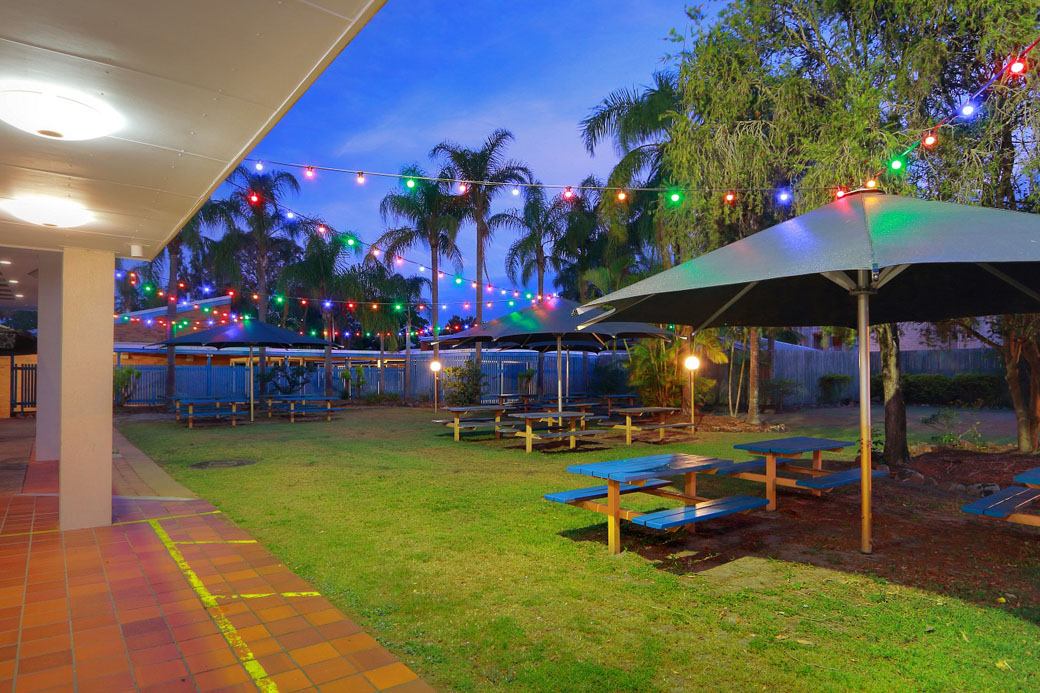
Events are often set up in carparks, adjacent to the beer garden, making the greatest challenge about flexibility and use of space. This also means a large area does not have to be permanently dedicated or kitted-out.
AVC’s span necessitates a robust corporate perspective, and it analyses its family-friendly pivots over the long-term, comparing trade to the same three-month period prior to the conversion. Measuring the returns, it finds good business in the balance.
“It really it comes down to spreading a very high fixed cost base
across greater hours of the week and having different offerings to attract different people,” adds Waterson.
“You need to be prepared to commit to it, and really try and build a baseline of trade over a sustained period. Just turning your carpark into a zoo one day and not really being that sort of pub is not really going to get your return.”
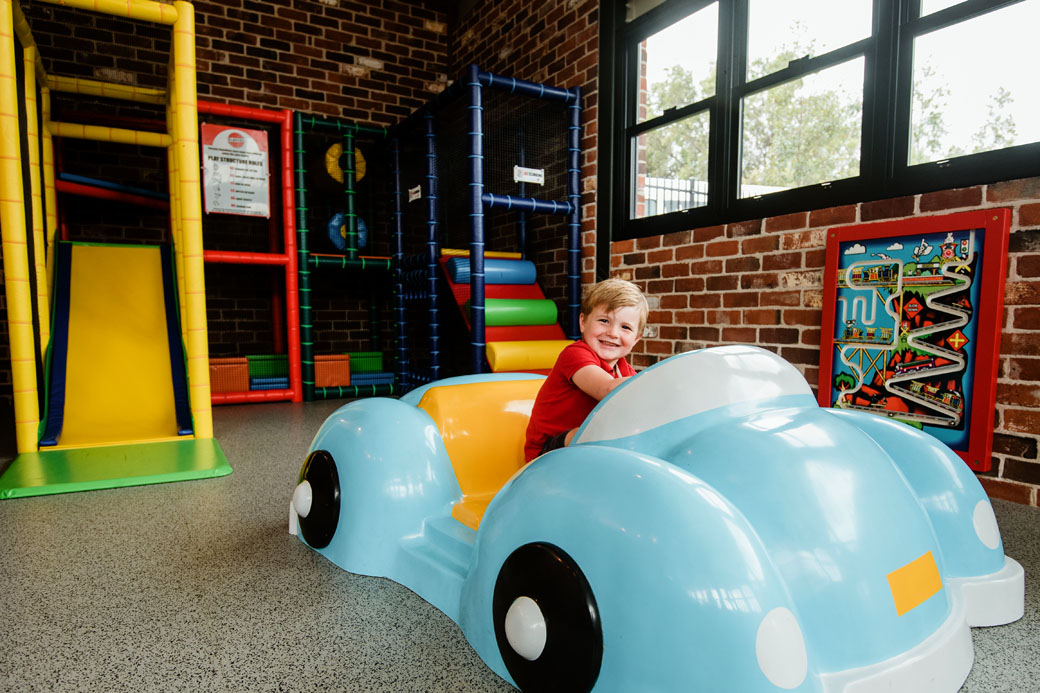
Courthouse Hotel, Tamworth
Harvest Hotels is a mid-sized group based in regional New South Wales, with pubs at Albury, Dubbo, Wagga Wagga and several at Tamworth.
Principal Chris Cornforth says they live large regional towns, and while they might buy a pub that isn’t family-friendly, any pub they look to acquire has to be able to accommodate multiple customer segments. Furthermore, they definitely focus on families as one of their customer segments and will eventually put an offering that suits families into any pub.
“Regional pubs, we believe, can only survive when you appeal to the majority of the community. And these sectors rely on families, so families are a critical customer segment for us – along with tradies, health care workers, tourists and retirees.
“If we’re really going to be part of that town that we operate in, families are such a crucial segment of the market that we must attract.”
Cornforth stresses they do not want to exclude a particular market, such as blue collar, and want to hold on to those people – but also find a way to fit different groups, particularly families. This is an ongoing approach, especially in light of the ongoing consolidation of pubs in regional areas.
The strategy is made easier due to the typical size of the Harvest venues, but also through consideration when renovating, aiming to look at how both a family and a tradie might use a space, and the different offerings they will want. This might include playgrounds, but also more space for older kids to run around and potentially throw a ball or kick a footy.
MAJOR FEATURE
The group also believe it’s important to have kids’ meals that aren’t just deep-fried frozen, ranging some quality options, while also understanding eating at the pub can be seen as a bit of a treat.
“Broad appeal is really the thing,” surmises Cornforth. “We don’t think we can buy a pub in a regional area and cater to only tradies, as we don’t think that’s a good enough offering.”
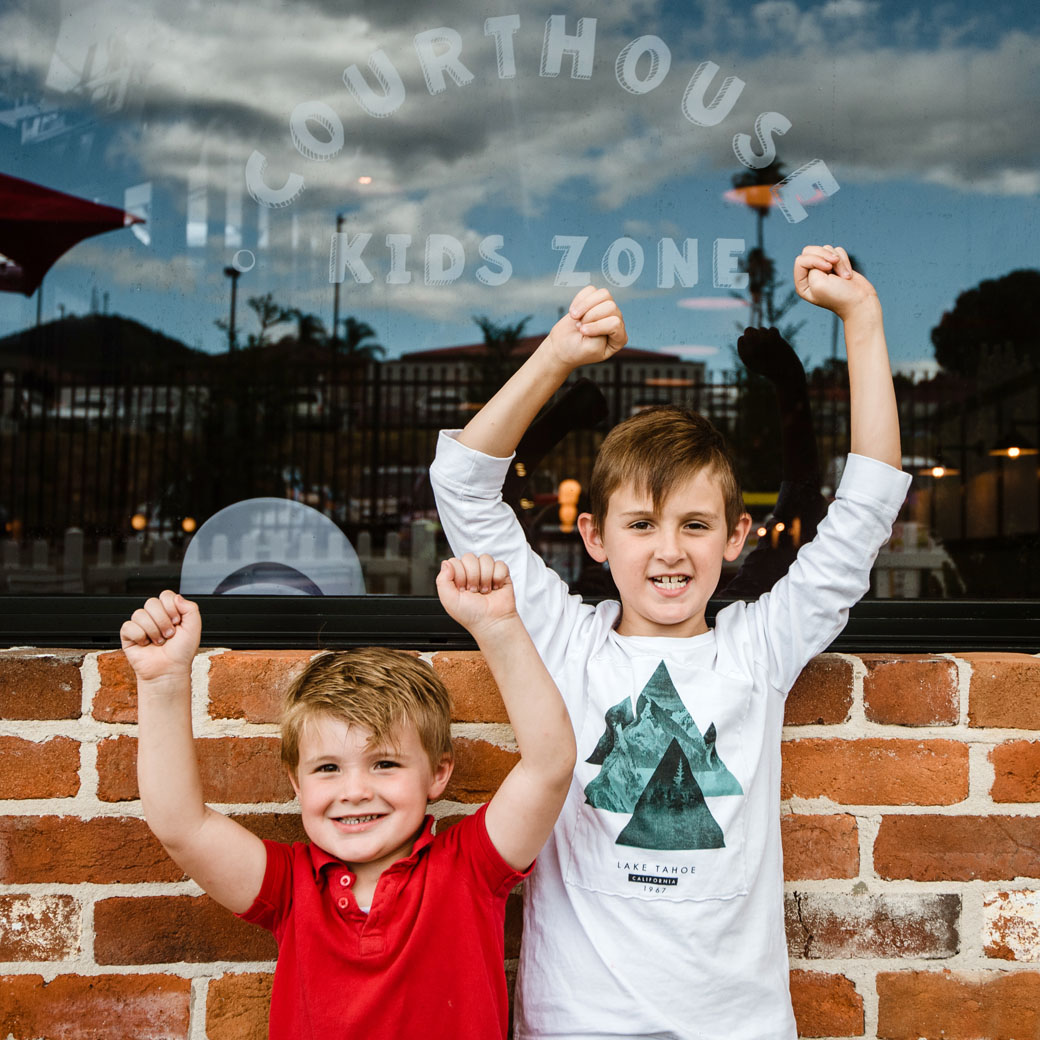
Courthouse Hotel, Tamworth
Sand Hill Road is one of Victoria’s most acclaimed operators, boasting legendary pubs such as the Garden State Hotel in the Melbourne CBD and St Kilda’s amazing The Espy.
Headed by four pub-devotee directors, now each with kids of their own, the group began the journey several years ago of understanding what a community pub meant. Many of its nine pubs cater for families, through their menus and pricing and product, particularly its Richmond venues, near the MCG. Director Andy Mullins says it’s lifted each entire venue.
“Once we embraced it, we had a lot of fun with it,” he says. “There’s something about kids in venues that makes sense.
“It makes economic sense, because if we can safely and in a fun environment bring families into venues, we can cater for a market that previously wasn’t considered relevant to venues. You’d be silly not to at least look at it.”
Andy recalls when he and brother Matt Mullins started in pubs back in 2000 with cohorts Doug Maskiell and Thomas Birch, pubs were about stinking carpets and disgusting toilets. A fight was guaranteed and a cocktail was something old school from Hollywood.
Their method asked the question: who are we doing this for, and why. This highlighted the nonsensical nature of the ‘ladies lounge’
at their first venue, the Commercial Club Hotel in Ritzroy, which flagrantly disregarded more than half the market.
Andy believes it’s time to again challenge some conventions.
“We’ve got to do the same now. It’s nothing different, we’ve just got to go back and challenge again.
“You don’t have to change massively, just enough to make the right people feel welcome. it’s become about how would we have to change what we currently do in order to attract and make people feel comfortable about bringing their families in.
“How many parents, caring for their kids, would love to come for a lunch at a venue, maybe on a Tuesday afternoon, but don’t feel welcome? That’s thousands!”
Similar to programming DJs, live music and seasonal menus for an audience, Mullins says kids are drawn to experiences. He takes lesson from Europe, where a family in France, for example, might lunch together before the kids go back to school.
He sees children generally happy sitting at the table, in a sophisticated environment of lighting and music, and says this has guided their approach.
“Don’t stick them out the back while mum and dad have a couple of wines and then we all go home. How about the idea of shared eating?
“Masterchef is watched by millions of children, and all those shows are catering specifically to families.
“For kids, it’s about being entertained by something in front of them. Provide something to immerse them in.”
This entertainment goes beyond menu options, which he says can’t always be just brown things on a plate. “That ticks off the parents.”
SHR knows often the only reason families are at the venue is because everyone’s sick of home cooking, so they are actively encouraged to try things they wouldn’t otherwise have. Staff are deliberately trained and allowed to have some fun with the kids,
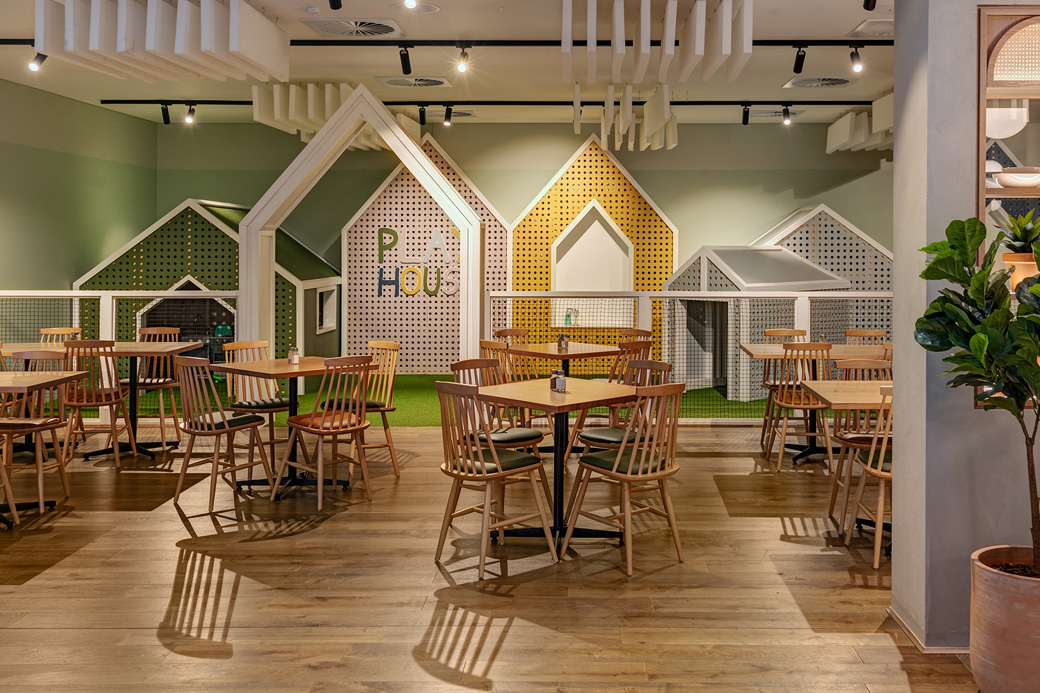
Colin Parras’ newly renovated Ambarvale Hotel, by Paul Kelly Design
MAJOR FEATURE
such as challenging anyone under 18 that orders the likes of nuggets and chips to have something they’ve never had before. Waitstaff will ask ‘have you ever had an oyster … or a tempura zucchini’ – and are typically met with disgust, but the staff member will foster the challenge and offer to have one at the same time, with parents often joining in the banter.
The kitchens of SHR go further to offer cooking classes for children, making house specialities such as The Espy’s Mya Tiger dumplings. These have been known to take place while the parents are doing cocktail-mixing classes.
The Mullins brothers have six kids between them, and one afternoon while the four adults were having a catch up in The Espy, soon after reopening, they came upon the idea of taking the offspring into the pub’s famous Gershwin room, where they turned on the lighting system, smoke machine and sound system. While the little Mullins’ rocked to Metallica turned up to 11, the parents had two hours of peace.
Rock gods that played The Espy in days gone by would have turned in their graves a year later when there was a children’s school holiday program in there. Michael Jackson’s 1982 hit Thriller was shown to the kids, who were all seeing it for the first time, before a full choreography team taught them how to do it. The carers could go away, have a glass of wine in the sun, come back in two hours and they saw it reproduced by a raptured cast of kids.
Now in his mid-40s, Andy began designing pubs in his mid-20s and says you need to know your strengths.

other people in at the level you’re targeting. A lot of our team will be younger and more dynamic than us, and they have to be because that’s the market we’re talking to.”
In an era where it is cheaper and often more convenient to take the family to a fast-food restaurant, he also believes the family spend can be an understated earner.
“In a concentrated period of time, say between 9pm and closing, a younger, single 19-35-year-old market will spend more than a couple of parents with a kid.
“However, when you realise those peak periods of spending, probably Friday and Saturday … that’s about eight hours a week. Then look at your opening times and consider the rest of the time.”
Welcoming families has become a staple part of the SHR model and brought welcome levity to the group. Andy forecasts it will continue to be an increasing focus coming out of COVID.
“There’s a huge drive for Australians to come back, and I think there’s huge acknowledgement that the things we haven’t been able to have – arts, entertainment, a pub meal, an arvo in the sun – are the things we crave so much.
“And so long as we’re ready and willing to include families and children, it’s going to be a great experience coming out of these times.”
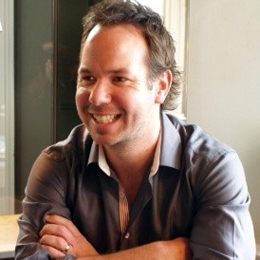
Andy Mullins
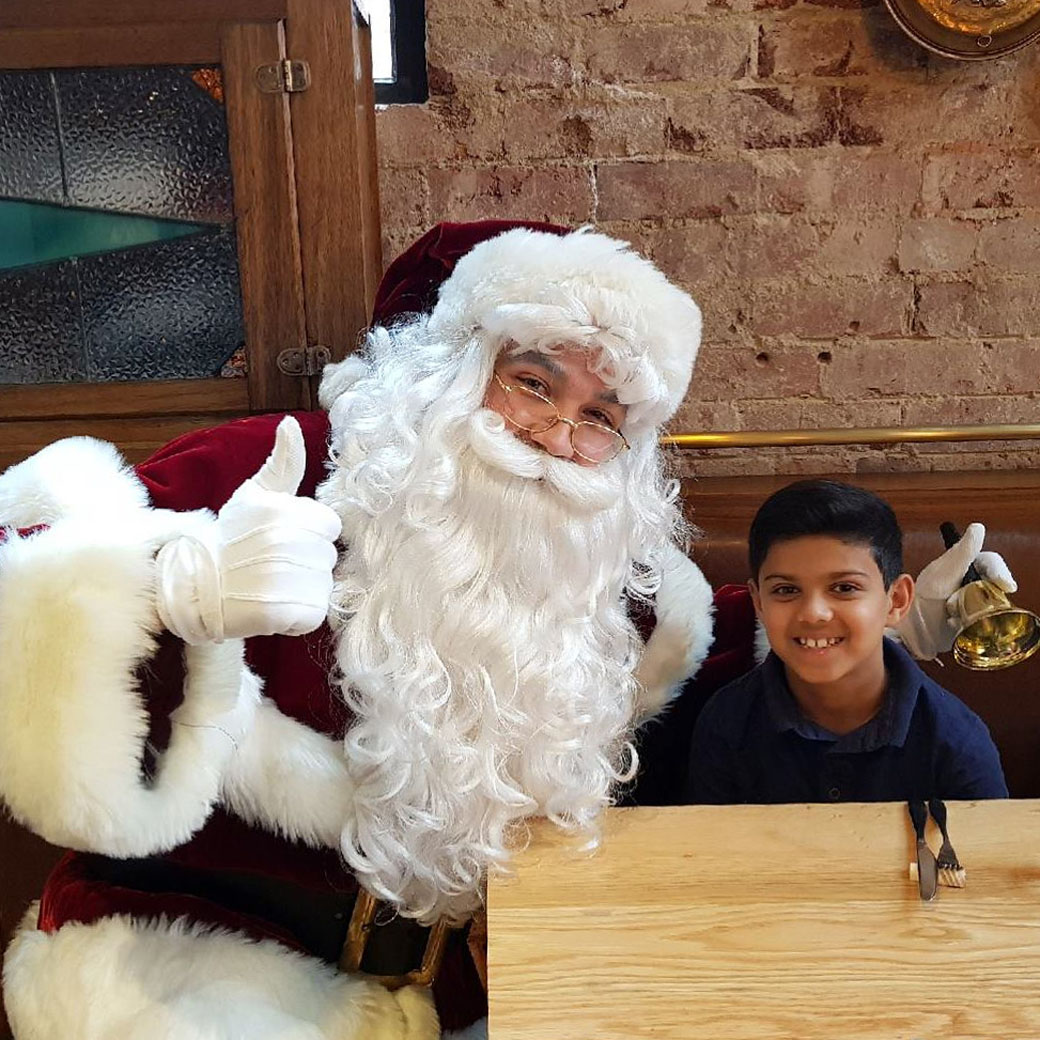
MAJOR FEATURE
